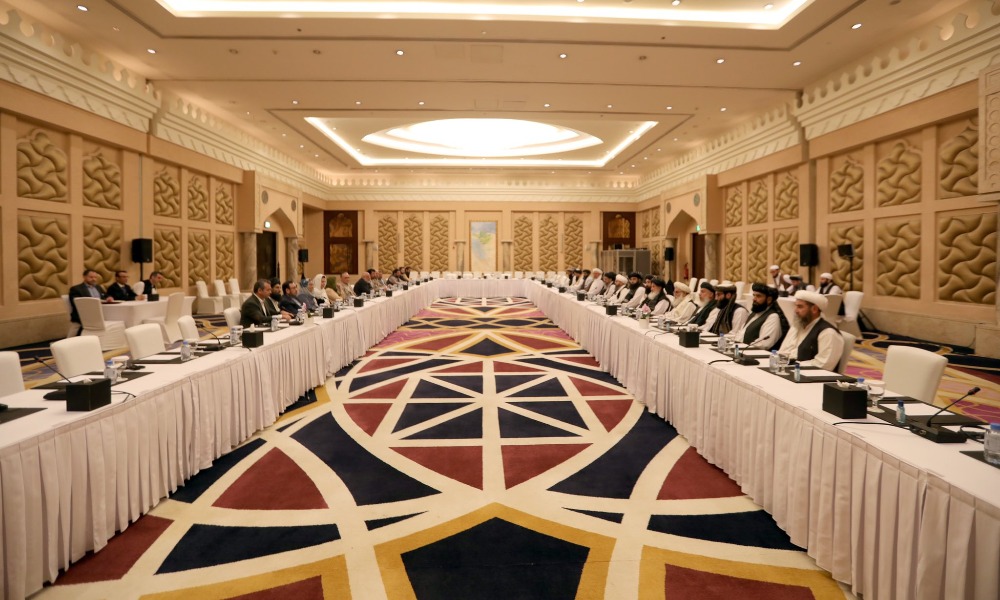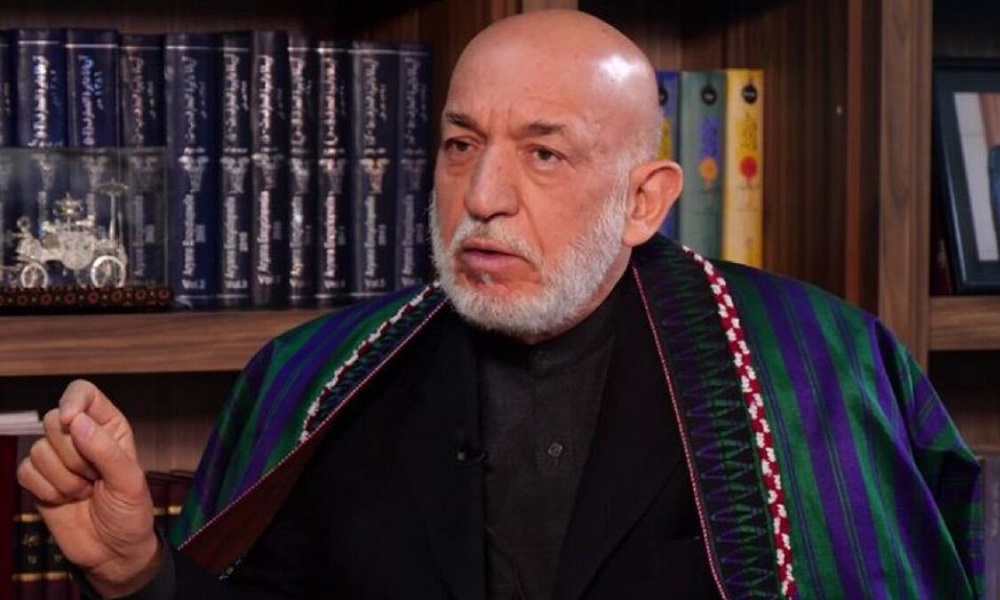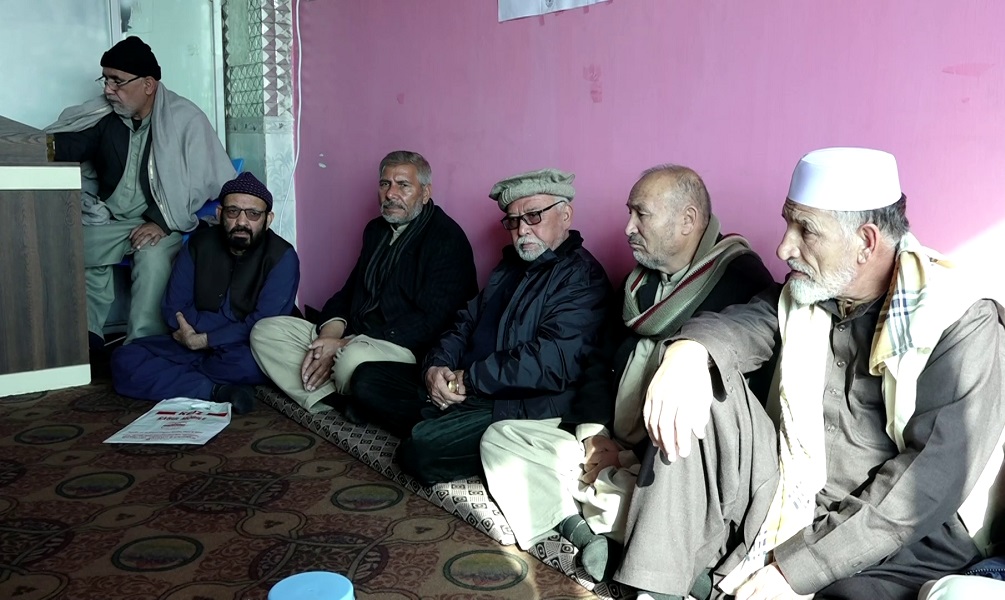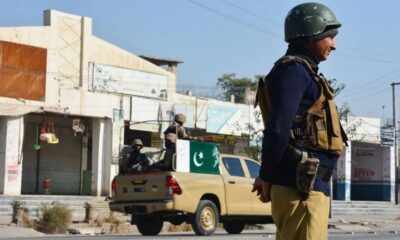Latest News
Afghan peace talks teams share demands that differ vastly

The Afghan Republic’s talks team and the Taliban’s team each presented their demands during discussions on Wednesday and while the republic’s team wants achievements to be preserved, the Taliban are set on an Islamic state.
This came on the fifth straight day of discussions between the two sides after last week’s breakthrough in the months-long deadlock.
Sources told Ariana News on condition of anonymity that the Republic’s team put forward 28 items and emphasized the need to preserve the achievements made over the past 19 years.
The Taliban in turn put forward 22 demands and emphasized the need for an interim government and women’s rights to be upheld in accordance with Sharia law.
The source said the requests by the Republic’s negotiators included the following:
- Declaring a lasting ceasefire without any conditions
- Preserving the Islamic Republic system
- Preserving the country’s flag
- Preserving the Afghan Constitution
- Preserving the Afghan national defense and security institutions
- Accepting all contracts and agreements that the government signed with various countries
- Disarming all Taliban fighters after a peace agreement has been signed
- Recruiting the Taliban into government structures after the completion of the peace process
- Accepting women, children, and people with disabilities’ rights as per national and international norms.
“Today both [teams of] negotiators discussed relevant issues on the agenda. Our negotiators focused on people’s demands,” said Najia Anwar, spokeswoman for the State Ministry on Peace Affairs.
The Taliban meanwhile called for the following:
- Removal of all Taliban names from blacklists
- Removal of the use of terms such as republic and democratic and for the next government to be named the Islamic government
- All educational and training institutions should operate in accordance with Sharia law
- Establishing an organization under the name of Amr-bil-Maroof to enforce Islamic law
- Establishing an interim government for between 12 and 18 months
- Both sides to keep the areas under their control currently [but local governments in Taliban areas to be handed over]
- Disarming the Taliban would be accepted once an Islamic government has been established
- Recognizing the Taliban as a shadow government until the peace process has been finalized
- Terms like war crimes and violations of human rights should be removed and the use of the words should be recognized as a crime
- Including at least 100,000 Taliban fighters into the Afghan security forces after a peace deal has been reached
- Civil society, human rights, women rights, and freedom of speech should be in accordance with Sharia law
- Establishing an Ulema council to advise the government and its decisions should be adhered to
“The Taliban and the government’s proposals should be discussed in the peace talks and I personally want a ceasefire first,” said Sima Samar, State Minister for Human Rights.
This comes after the Afghan Republic’s team and the Taliban agreed on procedural rules last week in order to take the talks forward.
Latest News
G7 envoys urge national dialogue for lasting stability in Afghanistan

Special Representatives of the Group of Seven (G7), including the European Union, have emphasized the importance of a national dialogue for achieving long-term stability in Afghanistan.
Following a meeting on Afghanistan in Geneva, Switzerland, G7 special envoys issued a joint statement calling for the restoration of women's rights and urging the Islamic Emirate to fight terrorism.
The statement reads: "Achieving sustainable peace and stability requires credible governance that represents all segments of Afghan society."
The representatives also expressed concern over the IEA’s decision to ban girls from attending medical institutes, warning that it will have devastating consequences for the citizens, particularly mothers and their infants.
The statement described this ban as unacceptable and called on the Afghan authorities to lift it immediately.
Earlier, countries and international organizations had called for the removal of restrictions on the education and employment of women and girls, emphasizing the need for a national dialogue.
In response to these concerns, IEA has repeatedly stated that it will not allow interference in the internal affairs of the country.
The G7 special envoys also expressed their concern about the recent terrorist attacks in Kabul and the surrounding region, warning that terrorism remains a serious threat to Afghanistan's security. They confirmed the actions of the IEA against Daesh but stressed the need for more decisive measures.
Latest News
Afghanistan’s bright future lies in educating girls: Karzai

Hamid Karzai, the former president of Afghanistan, says the demand of Afghan girls for the reopening of schools and universities is their fundamental right and adds that Afghanistan cannot have a bright future without ensuring access to education for girls.
In a statement on his X (formerly Twitter) account, Karzai said: "The demand and voice of our country’s girls for education and knowledge is a rightful one and crucial for a prosperous Afghanistan."
He further emphasized, "Empowering the youth—both girls and boys—is the only way to achieve self-reliance, break the cycle of poverty, and drive the development and prosperity of society."
Karzai underscored that education is vital for Afghanistan’s growth and development, expressing hope that the doors of schools and universities for girls will be reopened as soon as possible.
Latest News
IEA to set up special courts to address pensions

Mawlawi Hebatullah Akhundzada, the supreme leader of the Islamic Emirate of Afghanistan (IEA), has issued a decree to establish special courts to address pensions, Bakhtar news agency reported on Saturday.
According to the decree, the courts must confirm and process pensions in accordance with Sharia and law.
Pensioners have repeatedly voiced concern over delay in payment, saying that their financial challenges are growing.
Earlier this year, IEA's supreme leader banned money being deducted from salaries of government employees for pensions.
He also requested information on the tenure of employees and the total amount deducted from salaries for pensions.
-

 Sport5 days ago
Sport5 days agoLanka T10: All three matches abandoned due to rain
-

 Latest News5 days ago
Latest News5 days agoIndia hoping to import coal and marble from Afghanistan
-

 Sport4 days ago
Sport4 days agoZimbabwe’s opening ODI against Afghanistan abandoned
-

 Latest News5 days ago
Latest News5 days agoFuel prices rise in Herat as winter approaches
-

 Latest News5 days ago
Latest News5 days agoJapan announces $27.5 million aid package to Afghanistan
-

 Latest News3 days ago
Latest News3 days agoTwo horror accidents on Kabul-Kandahar highway leave 52 dead
-

 Latest News1 day ago
Latest News1 day agoAfghan men must stand with women to support viable future of country: US envoy
-

 World3 days ago
World3 days agoNorth Korean troops suffer 100 deaths, struggling in drone warfare, South Korea says
























